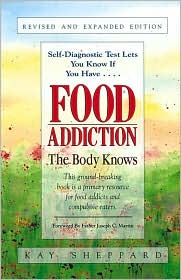 How often have you heard someone say that they are addicted to food? Certainly, on some level we are all addicted to food. If we don’t eat food we will not last very long, but is that an addiction? Are some people more dependent on food than others? A recent scientific study set out to answer these questions, with interesting results.
How often have you heard someone say that they are addicted to food? Certainly, on some level we are all addicted to food. If we don’t eat food we will not last very long, but is that an addiction? Are some people more dependent on food than others? A recent scientific study set out to answer these questions, with interesting results.The results of this study appeared in the April 4, 2011 edition of “Archives of General Psychiatry”. The study compared brain image scans (using functional magnetic resonance imaging) of people who identified themselves as “food addicts” and people who did not feel that they were addicted to food. Comparisons were made to similar brain scans of people who were addicted to drugs or alcohol.
For each experimental subject, pictures of milk shakes were displayed. The brains of food addicts displayed the same neural patterns as drug addicts when shown pictures of narcotics. This brain activity is associated with craving sensations.
Each test subject was then given an actual milk shake to drink. Their brain scan showed lower
levels of activity in the area of the brain associated with satisfaction, compared to people who did not see themselves as addicted to food. This implies that food addicts crave food more than the general populace, but get less satisfaction out of eating the food, leading to binging and overeating.
This difference in brain function may explain why it is so difficult for some people to successfully complete a diet program. With strong cravings and weak satisfaction from eating, a reduced intact diet is directly counter to a food addict’s brain response. Hopefully, further research can find a way to counter this predisposition and make it easier to break this cycle of overindulgence.
Are you ready to get back in shape? Don't do it alone! Check out WannaBuddy.com and find a local diet and exercise buddy for mutual support and encouragement.



No comments:
Post a Comment